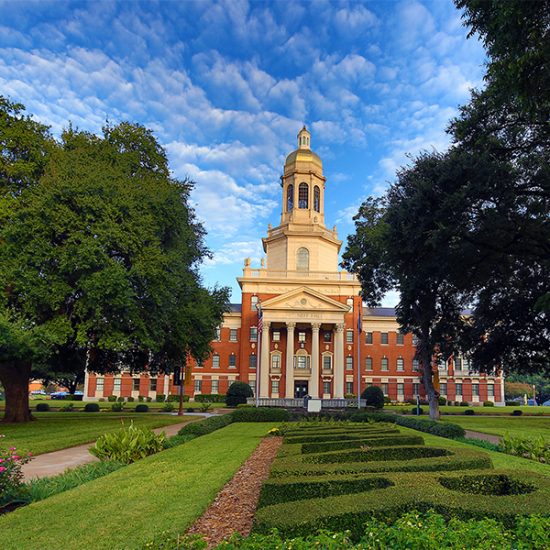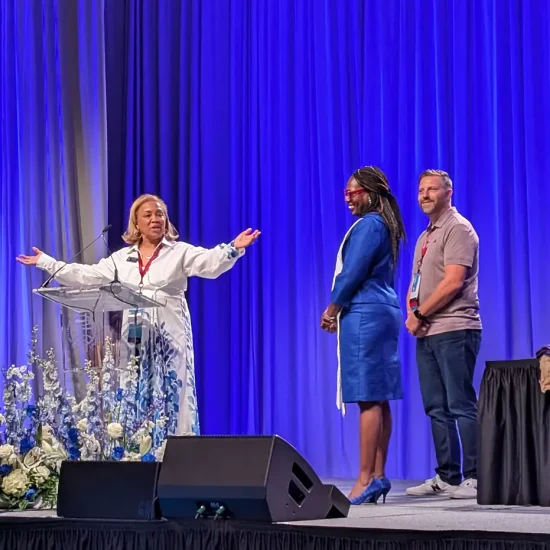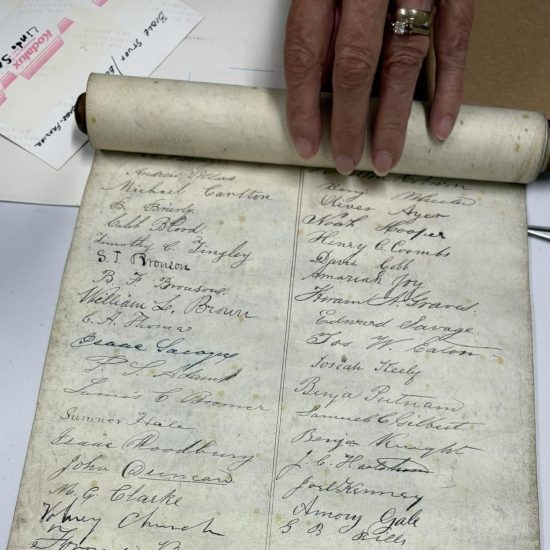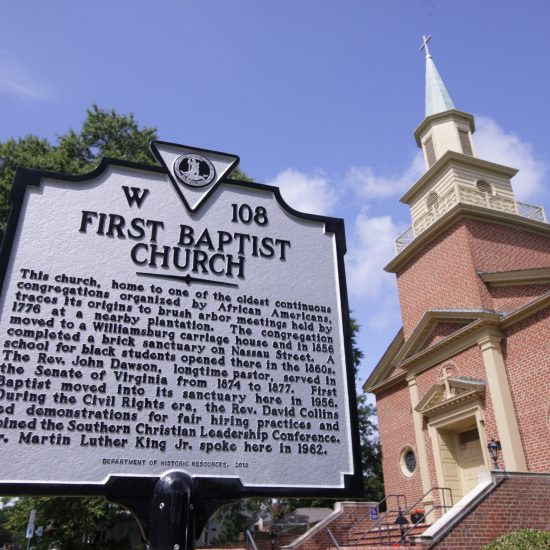NASHVILLE, Tenn. —The Census Bureau reports the Hispanic population in the United States has more than doubled in the last 20 years, from 22 million in 1990 to a projected 47 million in 2010. In 40 years, experts project that one American in four will be Hispanic.
While that alarms many white Americans who fear losing the privileges that come with being part of a dominant culture, many evangelical Christians view it as a mission field.
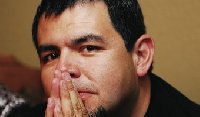
|
The Southern Baptist Convention leads all denominations in starting new churches, more than 100 each month. A major focus of the SBC North American Mission Board is reaching Hispanics.
Nine out of 10 Southern Baptist congregations are predominantly Anglo. Hispanics are the predominant ethnic group in about 3 percent of the convention’s churches, but the number is growing.
In the decade between 1994 and 2003, the number of Hispanic Southern Baptist congregations grew from 1,561 to 2,711.
Ed Stetzer, director of SBC-affiliated LifeWay Research, recently said 66 percent of all new congregations added to the SBC since 1998 were ethnic or African-American.
“The majority of the new churches are not Anglo,” Stetzer told the Tennessean in January. “You look across the spectrum, and the Christian influence in the Southern Hemisphere is well represented here, and it’s the leading edge of Christianity. Latino churches are now planting Latino churches.”
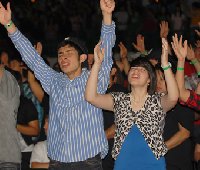
Students from Primera Iglesia Bautista in Fort Worth worship during the second general session at Congreso, an annual event for Hispanic teens and young adults sponsored by the Baptist General Convention of Texas. More than 7,000 students and leaders attended the event at Baylor University this year. (PHOTO/Kaitlin Chapman/Texas Baptist Communications)
|
Even among predominantly white Southern Baptist congregations, more than one in four —27 percent—have adult participants who are Hispanic.
This growing Latino presence sheds light on the normally socially conservative SBC’s surprisingly moderate stance on immigration.
In 2006 the convention passed a resolution calling on Christians to care for the needs of immigrants “regardless of their racial or ethnic background, country of origin, or legal status.”
It urged churches to encourage undocumented immigrants toward the path of legal status or citizenship and called on all Southern Baptists “to make the most of the tremendous opportunity for evangelism” among the immigrant population “to the end that these individuals might become both legal residents of the United States and loyal citizens of the kingdom of God.”
Richard Land of the SBC Ethics & Religious Liberty Commission—usually aligned with the Religious Right on issues like abortion, homosexuality and pornography—has shown up alongside liberal Democrats like the late Sen. Edward Kennedy and Sen. Charles Schumer to call for comprehensive immigration reform.
“It should be remembered that most of these undocumented workers who have broken the law by coming here illegally and thus should be penalized, did come here in order to work, whereas most of our home-grown criminals break the laws in order to avoid work,” Land said on his weekly radio program May 15.
Land supports immigration legislation that secures America’s borders, enforces existing laws including hiring of undocumented workers and provides an earned pathway to legal status or citizenship for the estimated 12 million foreigners living in the United States illegally.
Land’s compassion for the foreigner is both spiritual and pragmatic. With America becoming 1 percent more Hispanic each year, Republicans must adapt to demographic realities and address the perception that immigration reform is a Democratic issue.
“Hispanics are hard-wired to be like us on sanctity of life, marriage and issues of faith,” Land recently told CNN. “I’m concerned about being perceived as being unwelcoming to them.”
This concerns Cuban-born Miguel De La Torre, who teaches social ethics at Iliff School of Theology and is an outspoken advocate for comprehensive immigration reform.
He called it “highly opportunistic as well as paternalistic” to support immigration reform for political reasons, but he said any religious denomination that ignores the growing Latino population “does so at their own peril.”
De La Torre, an ordained Baptist minister who earned his Master of Divinity degree at Southern Baptist Theological Seminary, said he sees little evidence that the nation’s second-largest faith group is serious about including Hispanics as equal partners.
“My question would be: ‘How many Hispanics, how many Latinos, are trustees at seminaries? How many have key leadership positions in the SBC?’” he said.
De La Torre said those questions would clarify whether Southern Baptists speak about immigration with sincerity of if they are “just looking at how it is going to help the SBC.”
Stetzer agreed that while Southern Baptists have done well in planting churches among non-Anglos, they have done a poor job of mainstreaming them into convention life.
“As I see it, we have to find ways to move from planting to leadership partnership,” Stetzer said. “The SBC has a choice—we can increasingly reach, embrace and elevate to leadership new faces from our increasingly non-Anglo nation or become colonies of whites in the new multicultural American milieu.
“Southern Baptists are on the cutting edge of foreign missions but are too often unengaged with peoples next door. We need to do both.”

